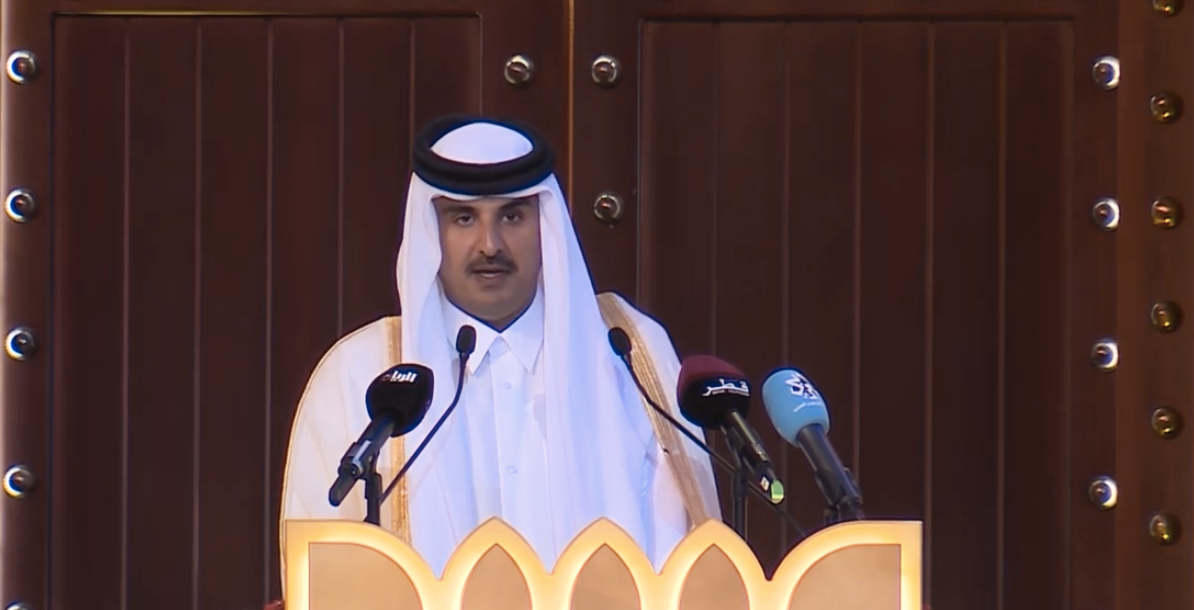“My own kids were like, Oh, enough already. You have a platform. You talk, talk, talk, but when are you actually going to do something like run for office so you can actually make a change?” Those words were the tipping point that led to the decision of activist-turned-politician Bianca Gracia to run for State Senate in Texas’ District 11. Gracia becomes yet another name on what is a growing list of citizens who were inspired by the “civilian to president” candidacy of Donald Trump. She is kicking off her campaign today with meetings and a fundraiser.
The co-founder of “Hispanics for Trump” and now the founder of Latino's for America First, Gracia is no stranger to the political world in terms of involvement. She has been a featured speaker at events all across the country, spreading the message to Americans in general and Hispanics in particular that our liberty is at risk and the time to act is now. This reporter had the occasion to meet her in July of 2021 at an event in Sturgis, South Dakota previously covered by Human Events.
“Back in 2016 I was still a stay-at-home mom when Trump was running for President. That's what got me politically involved. I knew there were problems with the education system. I knew there were problems with the border because I grew up just a couple miles from there in South Texas. I had been a small business owner during the Obama years. I not only couldn't get ahead, but my husband and I were working harder and getting behind. So, I thought, there's something wrong with this picture. Why are we working harder but feeling like we're going backwards and not forwards?”
Gracia was also personally impacted by issues surrounding Veterans health. “My little brother who is a 100% disabled Veteran contemplated suicide on a beach one weekend. So, when Hillary Clinton was running around saying there was no problem with the Veterans Administration, I knew she was lying. My brother couldn't get an appointment to see a doctor and was told that he would have to wait six months. He was in a lot of pain.”
Gracia, whose husband is a law enforcement officer, is also a strong supporter of the police as well as Veterans.
She cites as her three foundational principles faith, family, and freedom. Raised Catholic, she has become an evangelical since getting involved in politics. “When I got involved, I became the first female to ever be hired to run Hispanic engagement for the entire state of Texas. Little did I know that God was going to take me into the churches. It has been a journey. My faith has grown even more so now as an evangelical.” She notes that the typical Hispanic family has faith as a central part of their life and that is key in reaching them as constituents. “Probably in 99% of any Hispanic household, if you walk in, they have a Bible on a table, a crucifix on the wall, and an image of the Virgin Mary. They have something that relates or establishes that they are faithful people.”
Regarding family, Gracia notes that Hispanic families are close and large. One of seven children herself, who became the first in her family to graduate college, she said: “We are the fastest growing minority group in America. Our belief in faith and family means that abortion is not really an option. It is happening, but in general we are pro-life.” The strong sense of family within the Hispanic community is something that politicians need to understand, and she says Republicans have not done a good job historically of tapping into that.
When asked about the general perception that Democrats want to let Hispanics into the country illegally so that eventually they can become voters, a concept that assumes those people would naturally vote for Democrats, Gracia says, “You'd be surprised. Here's the interesting thing. When Trump left office, I talked to illegals that have been here already for ten, twenty, thirty-years. They have started businesses, they clean houses, they do landscaping, they work in restaurants. I had a lot of them that knew I supported Trump. And even though they couldn't vote, they related to his fighting spirit and his work ethic. To them, jobs are important because at the end of the day, if you take the “illegal” part out, these are just people who want to work.”
She continues, “They literally were telling me, ‘You’ve got to do something about that border.’ I’m saying, isn't that interesting? You came here illegally. They respond, ‘Yeah, but we've lived here for years. We have our businesses. These people are going to come over here and steal our jobs after we've established ourselves here.’ That gave me an insight to what even illegals were feeling. Our organization is probably the only Hispanic organization that doesn’t advocate for amnesty or citizenship. We don't need to give them citizenship and amnesty. They don't need that. We just need to come up with something that allows them to work here and go back if they want to come back and go back if they want to. I saw a poll that asked Hispanics, If you voted today, would you vote Republican or Democrat? The result was a 37%-37% tie. With men, 57% said they would vote Republican. These people can be reached with the right message that centers on faith, family and freedom.”
Asked what issues she would focus on if elected, Gracia immediately identifies border security and election integrity. “We need conservative Hispanics to start being the voice to fight against open borders. We need to be the ones who are presenting bills instead of letting Hispanic Democrats present open border, anti-wall bills.” As for election integrity, she says, “Texas senators passed this watered-down bill and gave us talking points that they were serious about election integrity. But when you read the bill, too much comes down to discretionary judgments, not clear rules. That's not election integrity, that’s just trying to keep people quiet.”
Gracia also identified medical freedom and school choice as big issues she intends to promote, along with protecting Veterans, police officers, and the elderly.
As for freedom, Gracia gets passionate. “We went to go see the missions in San Antonio. There are seven missions in San Antonio that were built back early, like in the 1700s. I learned that the Spanish monks came here in the 1700s to preach Christianity to the Native Americans. I didn’t know that. So, I started to do just a little bit of research. Do you know that we have 61 Medal of Honor, Mexican Americans living in the United States? Do you know that the first recipient of the Medal of Honor, when Abe Lincoln created the Medal of Honor, was given to a Mexican American after the Battle of Gettysburg? I learned that the Hispanic community has been fighting for our freedoms since the beginning. And now we have communism in our country. What are we going to do? Our history says that we will fight back for freedom. We always have.”
As has been the case with other Republican candidates, Bianca Gracia faces an uphill battle in taking on not only Democrat opposition, but she will also go up against the established candidates and power structure within her own party. Nothing in our conversation leads this reporter to conclude that she isn’t up to the challenge.
You can learn more about Gracia’s candidacy by visiting BiancaforTexas.com
 “My own kids were like, Oh, enough already. You have a platform. You talk, talk, talk, but when are you actually going to do something like run for office so you can actually make a change?” Those words were the tipping point that led to the decision of activist-turned-politician Bianca Gracia to run for State […]
“My own kids were like, Oh, enough already. You have a platform. You talk, talk, talk, but when are you actually going to do something like run for office so you can actually make a change?” Those words were the tipping point that led to the decision of activist-turned-politician Bianca Gracia to run for State […]





